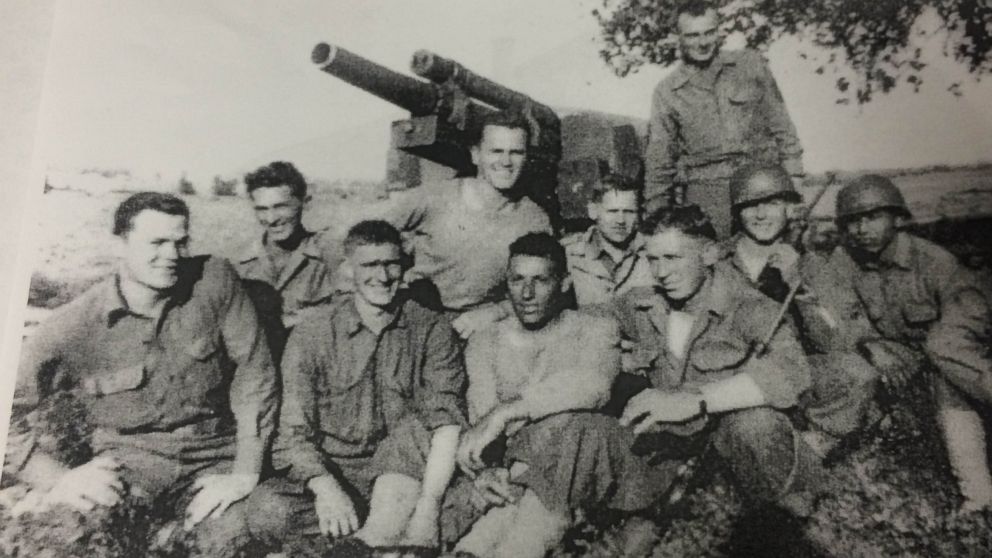
World War II represented a pivotal turning point in world history. All nations around the world were affected by the outcomes of this particular war even after the war had ended. The United States went through the Great Depression from 1929 leading up to the war. The Depression took a huge toll on society because many Americans faced issues with hunger, homelessness, undernourishment, as well as unemployment. In the year 1933, the financial collapse of the government triggered a worldwide depression that affected the economy of the country. President Franklin Delano Roosevelt did his best to help America survive the financial collapse but it would take more than his "New Deal" plan to end the Great Depression. However, by the late 1930s, America’s financial system had regrouped and was more stable compared to other "industrialized" nations. During the global depression, dictators such as Adolf Hitler, Hirohito, and Benito Mussolini rose to power to spread their distinctive forms of government across the world. America was divided on its involvement in the war but the attack on Pearl Harbor forced the country to take action. The United States entered the war against the 'Axis' nations (Germany, Japan, and Italy). The United States joined the war effort to help stop the spread of Nazism and expose its scheme of racial superiority to the world. In achieving this goal, the United States played an integral role in liberating the concentration camps in Europe. At these camps, American soldiers witnessed what horrors the Nazis had accomplished. Thousands of malnourished bodies and bruised limbs of the victims showed that these people had been tortured by the Germans. News was spread and pictures were taken that exposed the evidence of the Nazi-ran camps to the world and everyone was able to see what was happening in the camps. In the end, the United States managed to stop the spread of the “superior race disease” and the Allies won the war over the Axis Powers. This was a win for democracy. However, this war took the lives of around sixty million soldiers and civilians. During the war, soldiers became tired and hungry from sleepless nights and endless combat. The destruction from the war left major cities in Asia and Europe burned to the ground while the United States was left in a better position compared to the other nations President Roosevelt suggested that Americans help contribute towards the war effort and to not discriminate against women or African Americans in their employment practices. This allowed for women to enter the workplace for the first time. The war also restricted civil liberties at home, mostly for Japanese Americans. These people were put into internment camps with the the fear that they might engage in spying and sabotage the United States in support of the enemy. World War II also brought economic recovery to the United States far beyond what FDR's New Deal could bring. It was a time of prosperity for the United States. Through the GI bill, returning Americans soldiers were able to attend college and purchase homes with low mortgages. Many of these soldiers started their own families due to this, leading to the baby boom era. The post-war aftermath increased the foreign demand for American exports. As the other nations were rebuilding after the war, the needs of these nations could only be met by the United States. World War II, in a nutshell, was a important point in history which put the American economy back on its feet. WWII resulted in the creation of the United Nations, which was was created to prevent another world war. The United States joined the war effort for a good reason and the Allied victory set up the United States for years of prosperity.
Image information: Picture called "Eligio Ramos is pictured here with his platoon during World War II." by The Ramos Family. Source: https://abcnews.go.com/US/wallet-left-70-years-ago-austria-world-war/story?id=32900470
Brown, Louis. Technical and Military Imperatives: A Radar History of World War 2. Crc Press, 1999.
Brown, Louis. Technical and Military Imperatives: A Radar History of World War 2. Crc Press, 1999.
Reading your reflection gave good pointers. World War II was more like a pity war with United States wanted to just go with Geremy and other countries. I feel like the United States just wanted to prove something.
ReplyDeleteI agree that after the war the USA was in a better position than the countries of Europe. By not having to fight wars on our soil it saves our buildings and towns, unlike in Germany and France as you mentioned. The financial and economic set back of having to rebuild your most important cities had to have took a tremendous toll on those countries. Nice post, and nice thoughts.
ReplyDeletei love how you got straight to the point a lot of things happen in this time period. it was very smart of the USA not to fight on our homeland because so many would've been killed also so much money would've been spent on rebuilding. also the united state wanted to just prove that they were better than the rest .
ReplyDeleteHey I love what you did with reports on certain financials. A lot of people don’t think about all the money a country losses when they go to war. You explaining America’s financed before, during and after the war was a great idea.
ReplyDeleteHey, your post was extremely well written. I loved how you got straight to the point and even empathized a bit. great reflection on this weeks topic! Amazing work
ReplyDelete